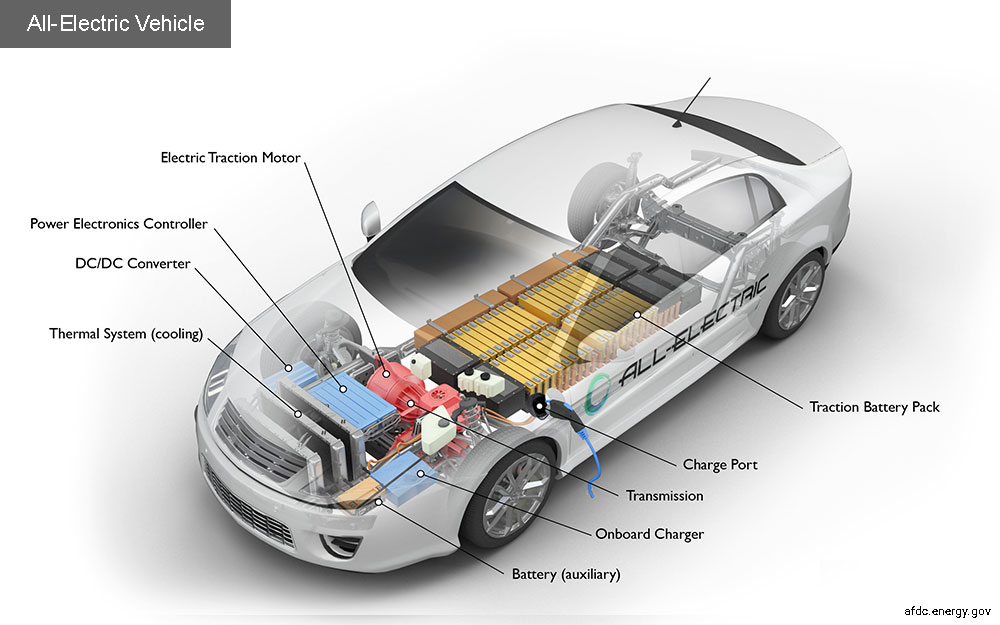News Blast
Your daily source for the latest news and insights.
Current Trends: Why Electric Cars Are the New Black
Explore the electrifying shift towards electric cars! Discover why they're the trendsetters of today's automotive landscape.
The Rise of Electric Cars: What You Need to Know
The rise of electric cars has transformed the automotive industry, signaling a shift towards more sustainable transportation solutions. With increasing concerns about climate change and air pollution, consumers are becoming more aware of the environmental impact of their vehicle choices. As a result, major automakers are investing heavily in electric vehicle (EV) technology, leading to a wider selection of models available in the market. Furthermore, government incentives and advancements in battery technology have made electric cars more accessible and appealing to the average consumer.
As the electric car segment continues to grow, several factors contribute to its popularity:
- Cost Savings: Electric vehicles often have lower operating costs, with savings on fuel and maintenance.
- Environmental Benefits: EVs produce zero tailpipe emissions, contributing to cleaner air and reduced greenhouse gas emissions.
- Technological Advancements: Rapid developments in battery technology are increasing the range and efficiency of electric cars, making them a practical choice for more drivers.
Staying informed about the rise of electric cars can help you make educated decisions as the automotive landscape continues to evolve.

Are Electric Cars Really Better for the Environment?
When evaluating whether electric cars are truly better for the environment, it is essential to consider a variety of factors including manufacturing processes, energy sources, and lifecycle emissions. On one hand, electric vehicles (EVs) produce zero tailpipe emissions, significantly reducing air pollution in urban areas. However, the production of EVs, particularly their batteries, requires substantial energy and raw materials, which can result in considerable environmental impacts if derived from fossil fuels or unsustainable mining practices. Moreover, the overall carbon footprint of an electric car is heavily dependent on the energy mix used to recharge it; in regions where electricity is generated primarily from coal, the environmental benefits may be diminished.
Despite these challenges, studies suggest that as the grid becomes greener with increased reliance on renewable energy sources, the environmental advantages of electric cars will become more pronounced. Over their operational lifespan, electric vehicles tend to emit fewer greenhouse gases compared to traditional internal combustion engine vehicles, assuming a cleaner energy portfolio. Ultimately, the transition to electric vehicles is not just about the cars themselves, but also about enhancing our overall energy infrastructure and making sustainable choices across all sectors. In summary, while electric cars present an opportunity for significant environmental improvements, achieving these benefits is closely tied to how we generate and use energy.
Top 5 Reasons Why Electric Cars Are Taking Over the Roads
As the world becomes increasingly aware of the environmental impacts of fossil fuels, electric cars are gaining traction as a sustainable alternative. One major reason for their rise is the significant advancements in battery technology. This has led to longer ranges and shorter charging times, making electric vehicles (EVs) more practical for everyday use. Additionally, government incentives and rebates are making the switch to electric vehicles more financially appealing for consumers, contributing to their growing popularity.
Another factor driving the shift towards electric cars is the increasing availability of charging infrastructure. With more public charging stations being installed, it has become easier than ever for drivers to charge their EVs on the go. Furthermore, as major automakers ramp up production of electric models, the variety of options available to consumers continues to expand, catering to diverse preferences and budgets. These benefits highlight why electric vehicles are poised to take over the roads.